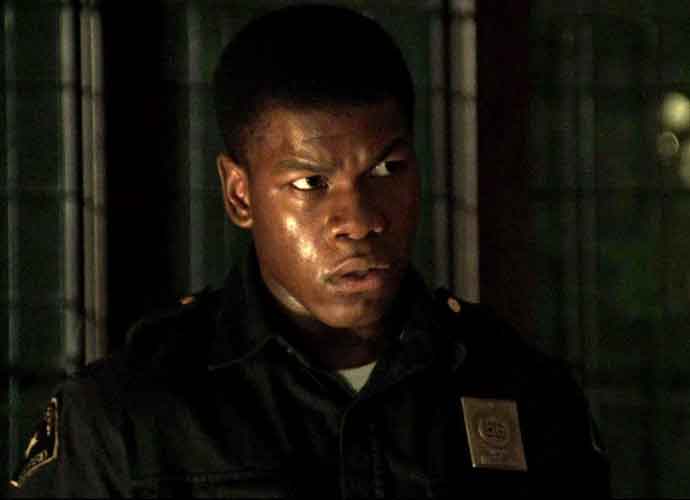‘Detroit’ Review Roundup: Katherine Bigelow’s Race Riot Film Gets Split Reviews

3.5/5
Detroit uncovers the history of the racial protests, riots, and violence in the city of Detroit in the summer of 1967. Many are criticizing the director, Katherine Bigelow‘s, choice to tell a story of the black experience in Detroit as a white woman from Northern California.
“It’s really a question of how do you humanize and how do you bring to life a situation,” Bigelow told The New York Times. “I suppose you use a personal judgment, I guess… “I have this opportunity to expose this story in the hope that maybe it either generates a conversation, begins to generate a conversation and/or encourages more stories like this to come forward. To do nothing was not an answer.”
The film focuses on a five-day rebellion, and the ensuing Algiers Motel incident,that left 43 dead and 1,200 injured. John Boyega, Anthony Mackie, and Will Poulter star. Thus far, the film has received an 88% on Rottentomatoes.
DETROIT REVIEW ROUNDUP
“Although the filmmakers insist that they stuck to historical facts in constructing “Detroit,” they did have to sprinkle Hollywood dust on parts of the story because some details of what happened remain murky… Ms. Bigelow makes no bones about the fact that she was an outsider trying to tell a story touching on some of the roots of Detroit’s pain. From the all-too-expected outcome of the trial of the police officers accused of the Algiers killings, to the way the officers concocted stories to justify the shootings, when the focus is not on who made the film, it is striking to see how the picture lives in the present day.”
–John Eligon, New York Times
“If anything, Bigelow pounds home its ghoulish ineffectiveness. She and Boal are after different game here: They want to draw a thick red line between what happened in Detroit and the continuing racial unrest in American cities. They want us to know that black lives do matter. In “Detroit,” it is too easy for us to feel that, but for a few bad law enforcement apples, things would not have escalated so sickeningly. If the film had focused on more than the Algiers Motel incident, if, as it starts out to do, it had attempted to convey a comprehensive and incendiary portrait of a city in crisis, it would have rendered far more justice to those times – and our own.”
–Peter Rainer, Christian Science Monitor
“What’s most troubling about Kathryn Bigelow’s recent collaborations with journalist-cum-screenwriter Mark Boal is that, despite claims to journalistic verisimilitude, their films express a foul tendency toward the exploitative… Such a clean-cut, cleaving of black and white feels not only fatalistic, but dangerously irresponsible – especially as, it hardly needs saying, Detroit feels explicitly pitched on a comment on contemporary racial tensions. Ultimately, Bigelow and Boal seem more concerned with the intimacy and unblinking realism of the horrifyingly extended sequences of black bodies in distress. Theirs is a newer, nastier strain of aspiringly highbrow exploitation cinema that wrings out the zeitgeist and saps contemporary political tensions for vulgar entertainment, casting the necessary complexities of that moment and those tensions to the side.”
–John Semley, The Globe and Mail
“There is no nice or pretty way to tell a story about the systemic oppression and mistreatment of black people in the United States. It’s fitting then that Kathryn Bigelow’s ” Detroit ,” an account of the murders of three unarmed black men that took place in the Algiers Motel in late July 1967, is neither — it is an all-out assault on your senses and soul. It’s hard to overstate just how visceral and harrowing an experience it is. “Detroit” is a well-made and evocative film that is also numbingly brutal with little to no reprieve. And while it might be the only true way to tell this story, it’s also one that is not going to be for everyone. The stomach-churning horror begins immediately and does not let up for 2 hours and 23 minutes.”
–Lindsey Bahr, ABC News
RELATED ARTICLES
Get the most-revealing celebrity conversations with the uInterview podcast!





Leave a comment